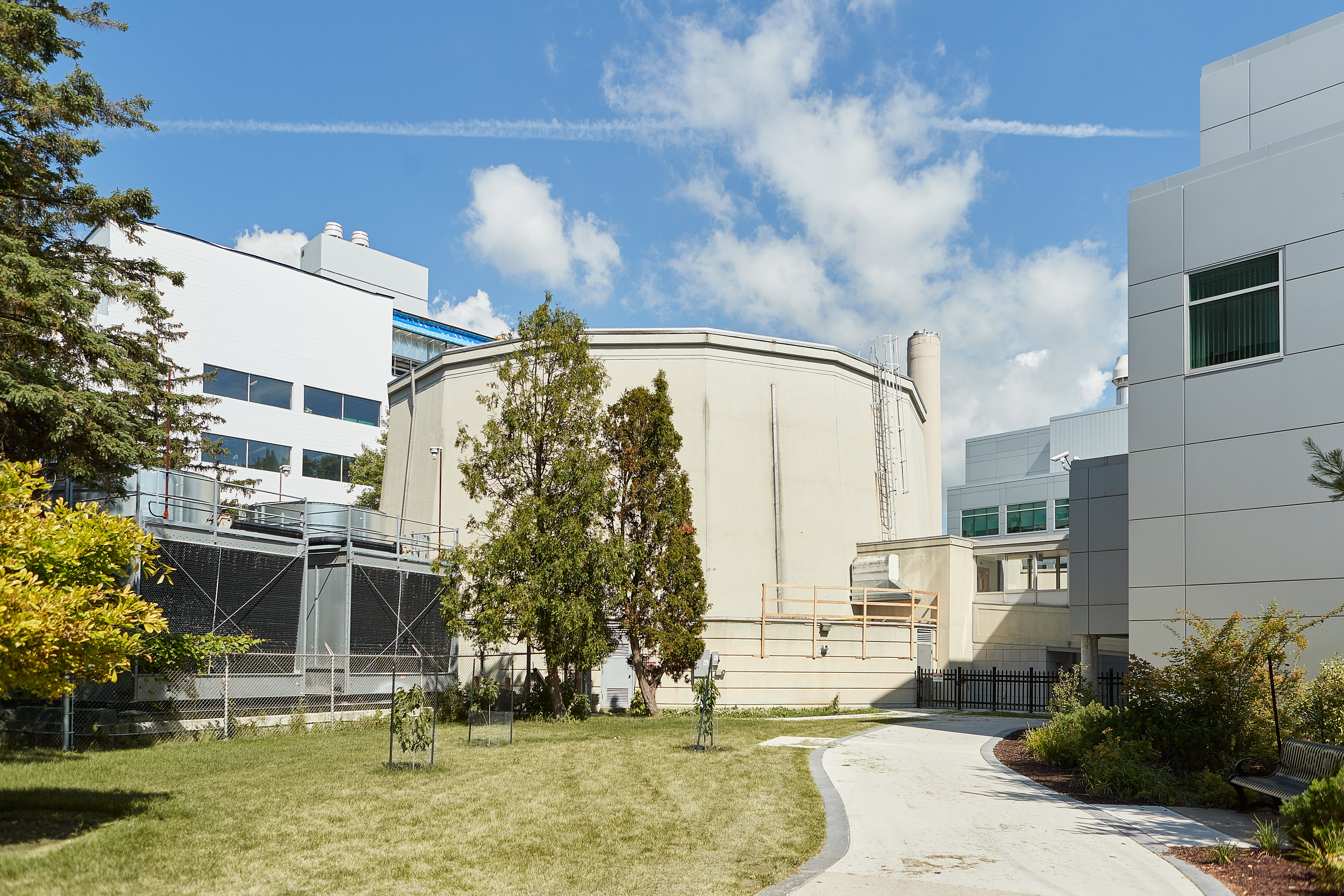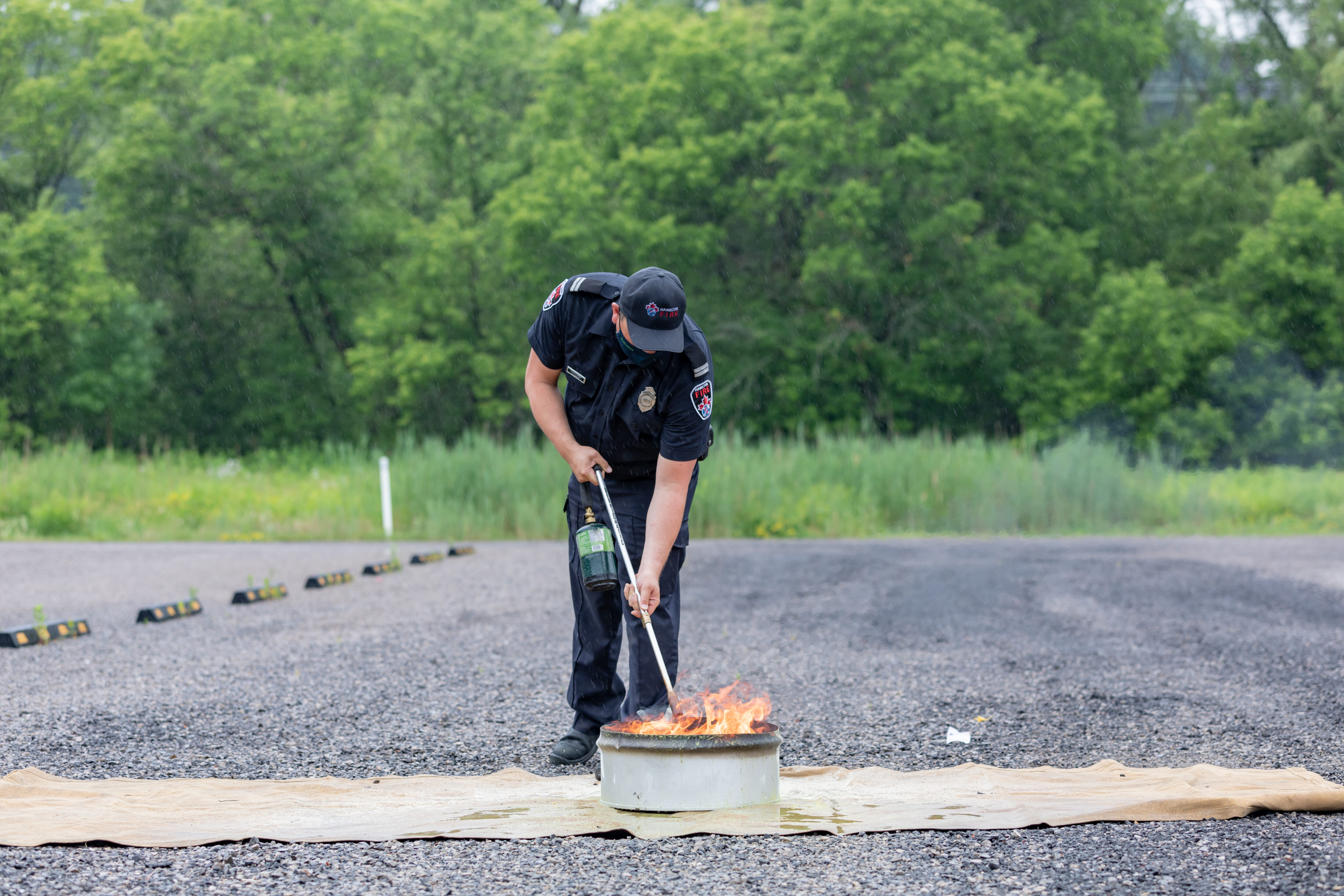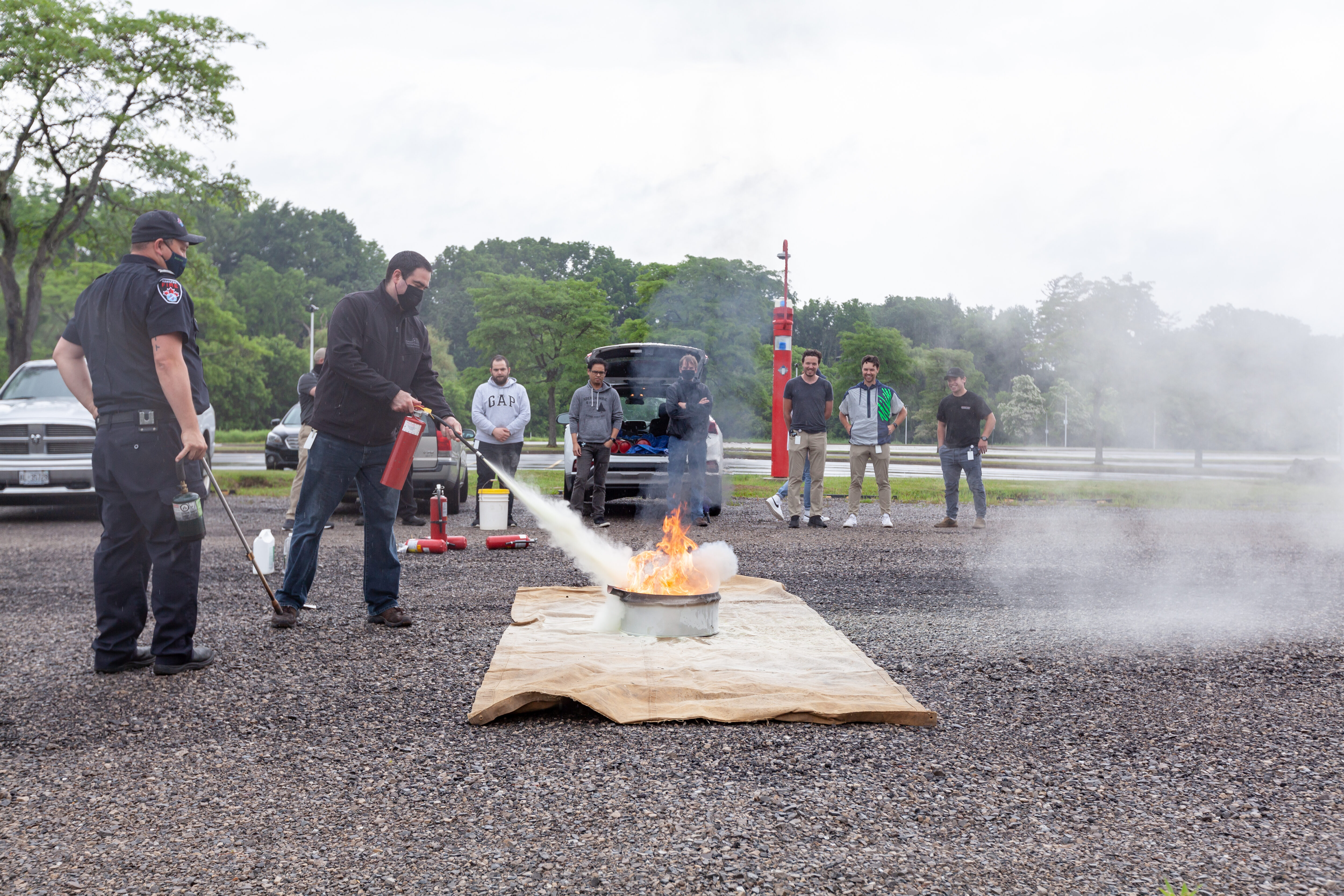Nuclear Operations & Facilities hosts successful virtual radiological response exercise

On Friday June 18th, McMaster University conducted a Type B drill to test McMaster Nuclear Reactor staff and Health Physics staff on their emergency response to a fire in a radiological area.
Emergency response exercises are part of McMaster University’s licence responsibilities, as per the Canadian Nuclear Safety Commission’s guidelines. Typically, emergency response exercises are held in-person, giving participants an opportunity to practice responding to an emergency in real-time. Due to the COVID-19 pandemic, this month’s drill was performed virtually. The exercise saw McMaster Nuclear Reactor (MNR) staff, Health Physics (HP) staff, and local emergency responders, including the Hamilton Fire Department, working together to address everyone’s responsibilities in the event of a fire.
Led by Senior Health Physicist Josip Zic, Health Physicist Chris Malcolmson, and Reactor Manager Robert Pasuta, the virtual drill had over 50 attendees, including McMaster’s Director of Nuclear Operations, Chris Heysel, who thanked the City of Hamilton for their continued support in his opening remarks.
“Emergency drills really test our capabilities and bring us together as a team, making the procedure that much stronger,” said Heysel.
Those participating in the drill were asked to view a series of videos simulating a fire in the reactor building. Then, participants were divided into breakout rooms and asked to consider how members of different groups – control room operators, Health Physics staff, administration staff, and other reactor building occupants – should respond to the situation. The breakout rooms included members from each of the four groups, giving participants an opportunity to reflect on their own roles and others’ roles in the event of an emergency. Afterwards, the participants reconvened to discuss their responses and ask questions.
Emergency drills make everyone feel more confident in their roles, says Health Physicist Chris Malcolmson. “Practice makes perfect.”
While not an ideal way to host a drill, virtual drills have their own benefits, noted Malcolmson. Pierre Tanguay, a Senior Project Officer for the Canadian Nuclear Safety Commission, would not typically make the trip out from Ottawa to attend a Type B drill at McMaster. This year, Tanguay was able to attend the drill virtually. He oversaw the exercise and provided essential input on MNR’s emergency response protocols.
“It was a great opportunity to show Pierre Tanguay what we put together and to showcase our relationship with the Hamilton Fire Department,” says Malcolmson.
Firefighter and hazmat coordinator, Phil Fujimoto, represented the Hamilton Fire Department at the drill. The Hamilton Fire Department plays an important role in emergency situations at the reactor – they consult with on-site MNR and HP staff to understand the radiological conditions of an emergency and determine the best way to respond to the situation. In return, MNR and HP staff provide the Hamilton Fire Department with radiation instrument calibration and training that improves their response to a radiological event. McMaster hosts training sessions with the Hamilton Fire Department’s hazmat crew every few years, ensuring that they have the knowledge and experience needed to respond to emergencies involving radioactive materials.
Phil Fujimoto also led an in-person fire extinguisher training session for MNR staff. The Hamilton Fire Department’s hazmat crew set up a series of fires in Parking Lot M and operations staff practiced putting out the fires with extinguishers.


“Although such an incident is highly unlikely, it is important that we exercise our response to emergency scenarios to ensure that everyone understands their responsibility during a crisis,” says Josip Zic, McMaster’s senior health physicist.
“During the COVID-19 pandemic, the essential services provided by McMaster’s Nuclear Reactor have continued. Conducting this exercise with our partners in real-time is an invaluable part of maintaining our emergency response capabilities.”
Essential services provided by MNR include the production of medical isotopes, such as iodine-125, which are used in cancer treatments. This year, McMaster University’s Medical Isotope Supply Chain team was awarded the President’s Award for Outstanding Service for their hard work and dedication in ensuring that life-saving medical isotopes continue to be produced and shipped around the world during the COVID-19 pandemic.
Blog